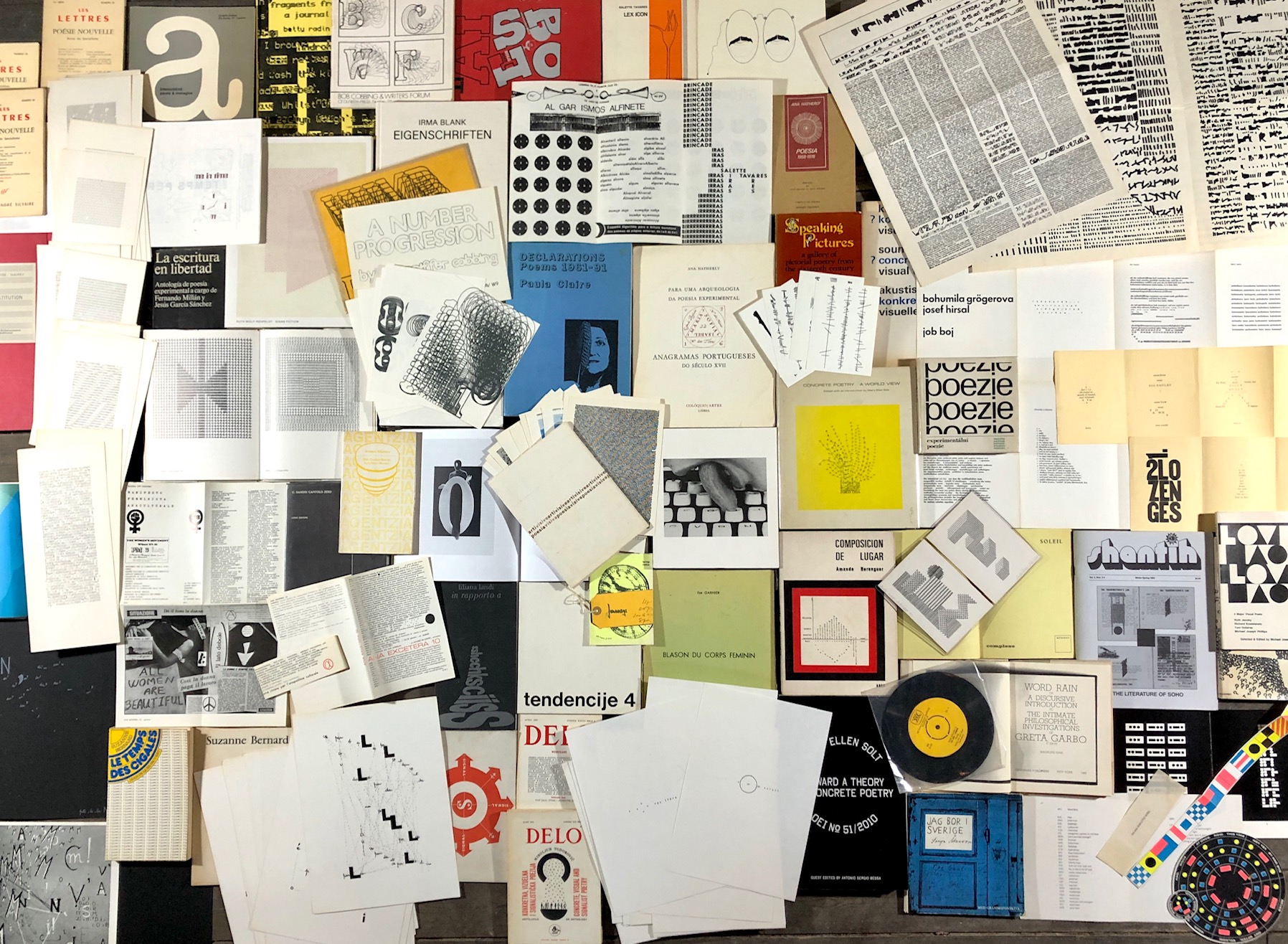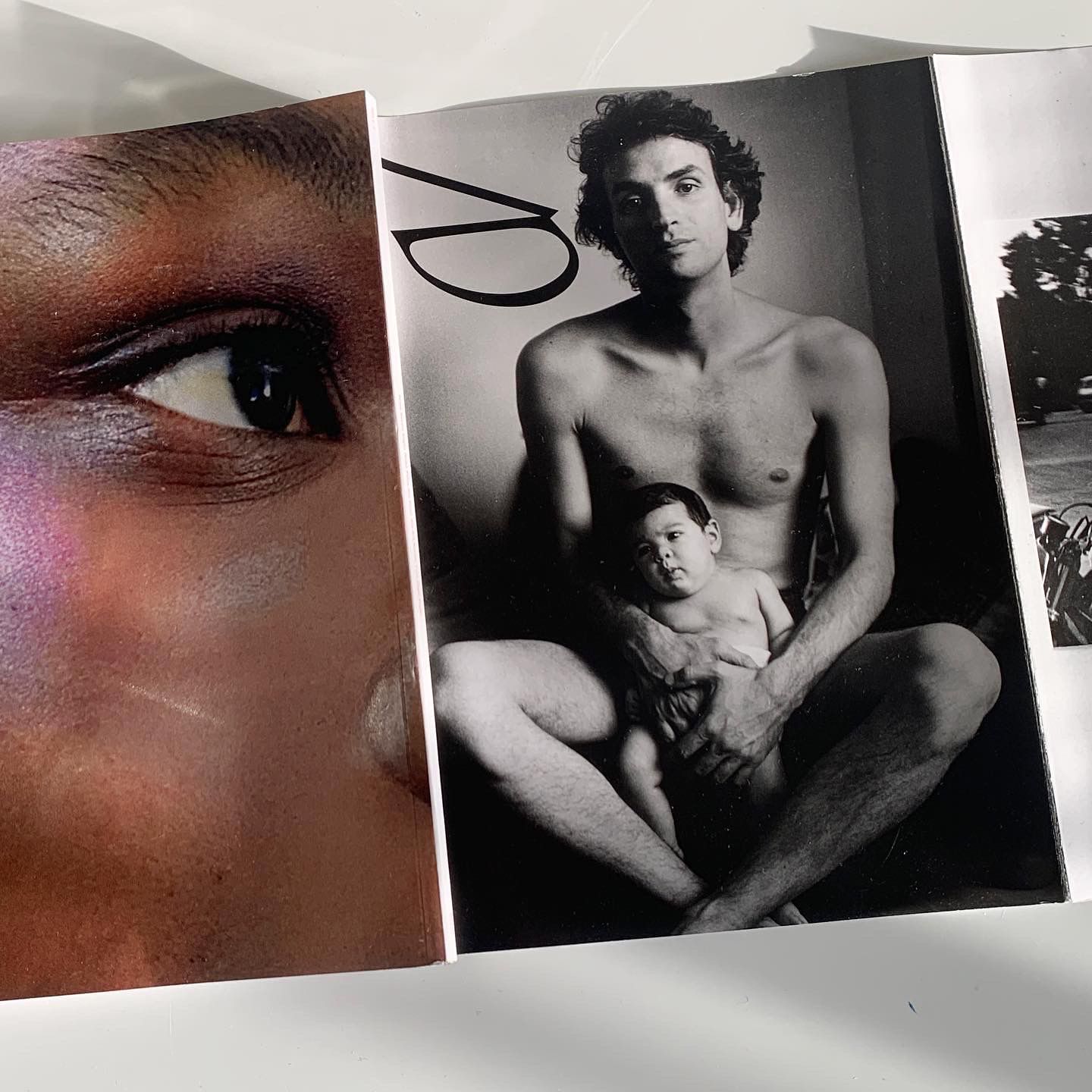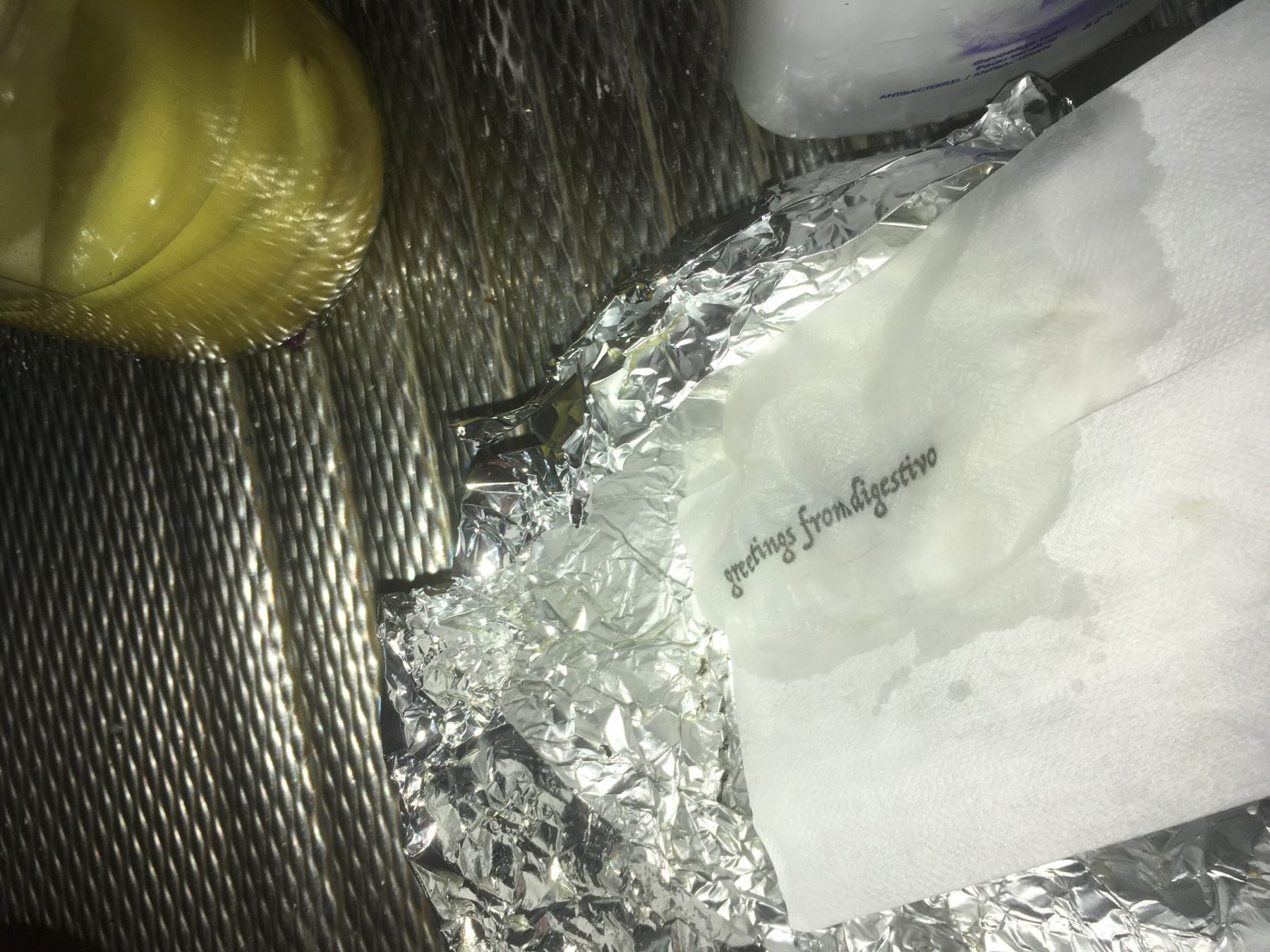
Ezio Gribaudo’s exhibition The Weight of the Concrete culminates with a series of events exploring the nexus of concrete poetry, publishing, graphic design, typography, feminism, and performance, inspired by Gribaudo and Adriano Spatola’s pioneering publication Il Peso del Concreto (1968). The series marks the end of an exhibition and sets the stage for a forthcoming publication published by Axis Axis and Grazer Kunstverein and edited by Tom Engels and Lilou Vidal, revisiting Gribaudo’s legacy and intertwining his graphic work with new and historical experimental poetry, slated for summer 2024 release.
Andrea di Serego Alighieri will focus on the distinct recto/verso format of Il Peso del Concreto [The Weight of the Concrete], as the book presents a unique duality: one side of the page showcases Gribaudo’s artwork, while the opposite side features an anthology of concrete poetry composed by the poet Spatola. As a response to this anthology, he will explore the work of Italian poet Amelia Rosselli (1930–1996) and examine her unique perspective on writing as both a graphic and bodily act of inscription and decipherment, an interplay she described as a fusion of “muscular movements and mental forms.” He will shed light on how this concept of physical inscription resonates with Gribaudo’s Logogrifi, discussing the tangible and performative dimensions of the page, extending it to his research on embossed squeeze papers used in epigraphy to archive inscriptions from antiquity.
ANDREA DI SEREGO ALIGHIERI (b. 1988, Italy) is a writer, editor and typographer based in Brussels. He studied Graphic Design at the Gerrit Rietveld Academie and Comparative Literature at the University of Amsterdam. Between 2014/2015 he was a researcher at the Jan van Eyck Academie. He is the co-editor of “Resistance” by Lyn Hejinian (uh books, 2019) and translator of Simone Forti’s L’orso allo specchio (Kunstverein Publishing & Galleria Raffaella Cortese, 2020). Recently, he co-edited and authored Glossator 11 (Open Humanities Press, 2021), FR DAVID “Take, Eat” (KW Institute for Contemporary Art & uh books, 2022) with Will Holder, and is the editor and translator of A Talk on Metrical Spaces by Amelia Rosselli (forthcoming for The Last Books). He is a lecturer in writing, typography and thesis tutor at the Royal Academy of Fine Arts in Antwerp, and a PhD candidate in Medieval & Modern Languages at the University of Oxford.

Ezio Gribaudo’s exhibition The Weight of the Concrete culminates with a series of events exploring the nexus of concrete poetry, publishing, graphic design, typography, feminism, and performance, inspired by Gribaudo and Adriano Spatola’s pioneering publication Il Peso del Concreto (1968). The series marks the end of an exhibition and sets the stage for a forthcoming publication published by Axis Axis and Grazer Kunstverein and edited by Tom Engels and Lilou Vidal, revisiting Gribaudo’s legacy and intertwining his graphic work with new and historical experimental poetry, slated for summer 2024 release.
In their upcoming talk, Mónica de la Torre and Alex Balgiu will present their 2020 publication, Women in Concrete Poetry: 1959-1979, an influential anthology that assembles concrete poems by women from the early stages of this avant-garde movement. This comprehensive collection highlights the contributions of 50 writers and artists from Europe, Japan, Latin America, and the United States, demonstrating how they challenged traditional conventions of genre, gender roles, and the patriarchal constraints on language and syntax. De la Torre and Balgiu will delve into the process behind compiling this anthology and share their personal reflections on the making of this publication, drawing from their experiences as poet, designer, and bibliophile, illuminating the collective endeavor to redefine poetry’s boundaries.
MÓNICA DE LA TORRE is the author of six books of poetry, of which the most recent, Repetition Nineteen (Nightboat), centers on experimental translation. Other collections include The Happy End/All Welcome (Ugly Duckling Presse)—a riff on a riff on Kafka’s Amerika—and Public Domain. Several of her books have been published in Mexico, among them Acúfenos and Taller de Taquimecanografía, written jointly with the eponymous women artists’ collective she co-founded. Recent art writing focuses on Cecilia Vicuña’s Palabrarmas series, Felix Gonzalez-Torres’s Photostats, and Ulises Carrión’s bookworks. She coedited Women in Concrete Poetry: 1959–79 (Primary Information) with Alex Balgiu. She is the recipient of the 2022 Foundation for Contemporary Arts C.D. Wright Award for Poetry and a 2022 Creative Capital grant and teaches poetry at Brooklyn College.
ALEX BALGIU is an educator, designerwriter and bookgatherer about the age of a Heidelberg GTO 52 press. Concerned with designing spaces for collective creativity and experimenting with various modes of transmission, you can catch him reading, playing and disseminating in Lausanne (Écal), Paris (Doc & Pca), Kyoto (Villa Kujoyama) or the bookshop next door. Or you can pick up Women in Concrete Poetry: 1959-79, a collection of outstanding concrete poems by women edited together with Mónica de la Torre (NY: Primary Information, 2020). Do you love books too much? Then join Bibliomania, an ongoing series of editorial puppet shows created with Olivier Lebrun, touring around the world. Currently learning from the forest and the river.

BILL is a “magazine without words” conceived and edited by Grazer Kunstverein’s in-house graphic designer Julie Peeters. Each year, BILL publishes an issue that uses the logic of the image to collect photographic stories and archival material from artists, architects, photographers, fashion designers, and graphic design colleagues, including Martin Margiela, Hans Hollein, Rosalind Nashashibi, Jason Dodge, Linda Van Deursen, and Jochen Lempert, among others. As part of the opening weekend of sekretas by Marija Olšauskaitė, BILL celebrates the launch of its 4th issue. The presentation of BILL4 will be accompanied by the release of a newly conceived limited-edition newspaper.
Benedikt Reichenbach in Camera Austria about BILL: “In terms of empowerment, where identity is typically formed merely in relation to a dominant structure, looking at BILL seems to bring you closer to yourself, without ever leaving it static at what that is. […] By putting you in the middle of its content, which at no point has anything to prove, you’re asked to articulate your own point of view to what you’re seeing. And if Peeters merely refers to the ornithological meaning of name and logo, it might just express the nature of BILL: a refusal to speak or have things resolved.”
Julie Peeters (b. 1983, Belgium) is a designer and editor based in Brussels. Since 2022 she has been responsible for the graphic identity of the Grazer Kunstverein in collaboration with Sophie Rentien Lando (digital) and Chiachi Chao (typeface). She is the founder and creative editor of BILL, an annual magazine of photographic stories and a publishing project focusing on the printed image.

On the occasion of sekretas’ opening weekend, digestivo responds to the exhibition and its contributors by way of the palate. Acting at times as host to other artists’ practices, digestivo’s role hovers mostly in and around the kitchen, providing food and fostering a space for encounters. Thinking through the means of hosting, they aim to investigate the reach of materialities that develop around acts of foraging, fermenting, or preserving: promoting leftovers and immersing them in a future prospect of sharing. Throughout the afternoon, digestivo will serve edible offerings that swerve along the logic of sekretas, its materials, and its riddles.
digestivo is a collaborative initiative founded in 2019 by artists Lucía Bayón and Lukas Meßner as an itinerant project space in Rotterdam. Past events include: Tempest Gourmand with Pedro Herrero Ferrán at Haus Wien, Vienna (2020); A voice can only break a glass that already has a crack in it with Hrefna Hörn Leifsdóttir, Rotterdam (2020); Colofonia líquida y saliva with María Nolla Mateos, Rotterdam (2019); and Moodring II, Rotterdam (2019).
Lucía Bayón (b. 1994, Spain) centers her practice around sculpture and writing. She lives in Madrid.
Lukas Meßner (b. 1989, Italy) is an artist working with sculpture, text, and images. He lives in Vienna.
